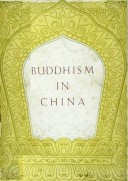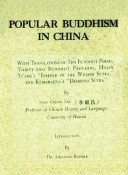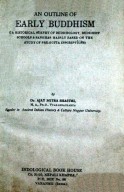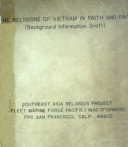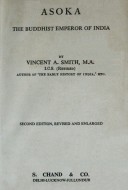Tìm Sách
Sách tiếng Anh-English >> Hindu Philosophy
Thông tin tra cứu
- Tên sách : Hindu Philosophy
- Tác giả : Theos Bernard
- Dịch giả :
- Ngôn ngữ : Anh
- Số trang : 185
- Nhà xuất bản : Jaico Publishing House BOMBAY
- Năm xuất bản : 1957
- Phân loại : Sách tiếng Anh-English
- MCB : 1210000004947
- OPAC :
- Tóm tắt :
PREFACE
This book is an attempt to outline the essence of the six classic systems of Hindu Philosophy, namely: Nyãya, Vaisesika, Sãmkhya, Yoga, Mĩmãmsa, and Vedanta. All other schools of thought are but variations of these six. I felt it necessary to present only one additional school, namely Kãsmĩr Saivism which gives the most detailed analysis of the Ultimate Principle; however, it can hardly be fully understood until the other six systems are comprehended.
To understand correctly Hindu Philosophy, it is paramount that one realize that the basis of all the schools is the same. Together they form a graduated interpretation of the Ultimate Reality. Each school is based on the same metaphysical doctrine, while discussing some particular aspect of the whole. For example: Nyãya discusses the means by which knowledge may be had of the Ultimate Reality; Vaisesika, the things to be known about that Ultimate Reality; Sãmkhya, the evolution of metaphysical doctrine; Yoga, the metaphysical doctrine in relation to the individual; Mĩmamsã, the rules and method of interpreting the doctrine; Vedanta, the relationship between God, Matter, and the world; and Kãsmir Saivism, the nature of the Ultimate Spirit and the Cause of the Initial Impulse. This outline is intended merely to show the interrelationship of these schools and how each assumes the doctrines of the other while it solves its special problem.
In this introduction to the classic philosophical schools of India, there is no attempt to prove or disprove but rather to present the system of each school—many eminent scholars nave ably discussed the philosophical implications in full detail. My problem has been one of deciding what would be omitted rather than what should be included. Only the essentials of each system are presented.
According to the classic schools of Hindu Philosophy, the method by which the individual can evolve himself during this life is through the practice of Yoga. This is the universal technique recommended to enable man to acquire actual insight into the true nature of things. All schools agree that until the faith is fortified with understanding, little progress can be made, for knowledge without application is like medicine, that is not taken.
To aid those who do not have a knowledge of Sanskrit, each term, in most cases, is defined when it is introduced, giving the seed concept of the word, so that the intended metaphysical idea can be more readily grasped. For future reference a glossary of all important terms has been provided in the hope that it may aid those who wish to read some of the recommended bibliographical material, [n the use of the English translation of these technical Sanskrit terms, one is cautioned not to take them literally, for it is impossible to adequately translate them. Various writers have used different translations which will be the source of confusion at first. However, if one learns to use the technical term, he will soon grasp its full connotation.
This work b a synthesis rather than an original contribution. In its preparation, I have relied extensively upon die writings of recognized authorities on Hindu Philosophy. For the sake of simplification, I have avoided extensive use of quotations and footnotes, and I have made use of the traditional chronology throughout without comment.
In conclusion, I wish to express my gratitude to those authors, listed in the bibliography, from whose works I have drawn. Special mention should be made of two outstanding guides: Indian Philosophy by S. Radhakrishnan, and A Histoty of Indian Philosophy by S. Dasgupta. I am also indebted to Professor Herbert w. Schneider, for many helpful recommendations in the preparation of the manuscript, and to Professor Loub H. Grey, for his constructive criticism and technical assistance.
Theos Bernard
TABLE OF CONTENTS
PREFACE
INTRODUCTION
Purpose of Hindu Philosophy
Test of Philosophy
The Darsanas
Influence
Samkara
Ramanuja
Madhva
Kãsmĩr
Saivism
The Tantras
Saivism
Saktism
Vaisnavism
NYÃYA
Purpose
Scope Philosophy Literature
VAISESIKA
Purpose
Scope
Philosophy
Paramdnus
Ãkãia
Kăla
Dik
Ẵtman
Manas
Literature
SAMKHYA
Purpose
Scope
Philosophy
Purusa
Prakfti
The Gtufas
Mahal
Ahamkira
Manas
Indriyas
Tasanitras
Mahãbhũtas
Literature
YOGA
Purpose
Scope
Philosophy
Jiaa
Gunas
Cilia
Buddhi
AhamkSra
Manas
Indriyas
Tanmãtras
Bhũtas
Literature
MĨMAMSA
Purpose
Scope
Philosophy
Literature
VEDÃNTA
Purpose
Scope
Philosophy
Brahman
Ãtman
Mãyã
Literature
KASMĨR SAIVISM
Purpose
Scope
Philosophy
The Siva Tattoo
The Sakti Tattoo
The Sadãtiva Tattva
The Isvara Tattva
The Sadvidyã Tattoo
The Mãyã Tattoo and Its Eoolutes
The Kancukas
Literature
GENERAL WORKS
Nyãya
Váisesika
Sãmkhya
Yoga
Mimãihsã
Vedãnta
Kãsmir Saivism
ABBREVIATIONS AND SYMBOLS
GLOSSARY
 Facebook
Facebook
 Google
Google
 Google+
Google+

